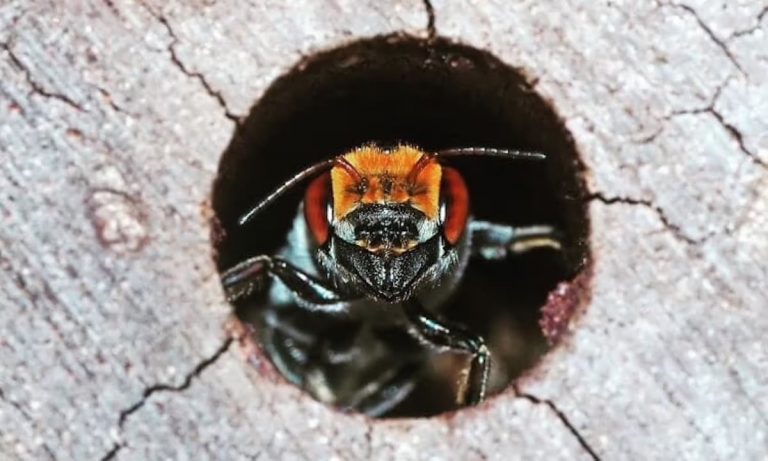Bee Hotels Can Help Native Pollinators Recover In The Wake Of Wildfires
Wild pollinator populations are declining all over the world, with increasingly severe climate change-fueled wildfires threatening their survival. These intense wildfires are also putting long-term ecosystem health and biodiversity at risk.
Bee hotels are artificial nesting structures that have been specially designed to house cavity-nesting species. Often placed in backyards or gardens, they provide safe havens and nurseries for essential pollinators.
New research led by conservationist Dr. Kit Prendergast, a native bee scientist with University of Southern Queensland (UniSQ), has found that bee hotels can play an essential role in helping native bee populations recover from wildfires.















